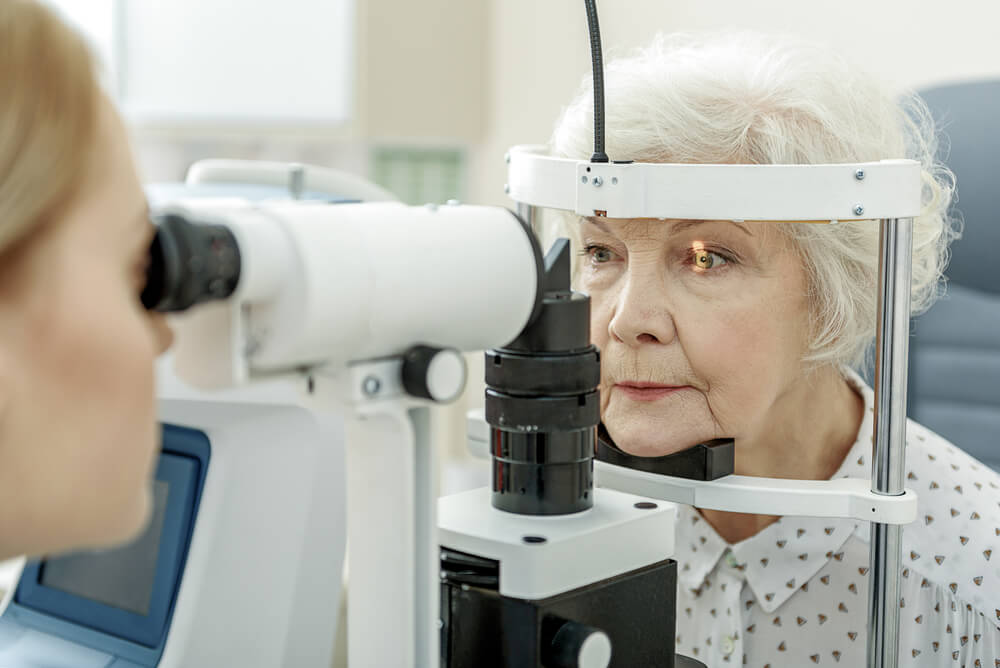
Glaucoma is the most preventable cause of non-reversible vision loss in the developed world, so it is import to get routine eye exams and understand glaucoma symptoms and signs. Glaucoma is a serious condition where fluid in the eye begins to build up, which causes pressure to build on the optic nerve. The optic nerve connects the eye to your brain and it is responsible for carrying messages from the back of the eye to the brain.
Angle-closure and open-angle are the two main forms of glaucoma. Open-angle glaucoma is more common and with this type, vision loss tends to happen slowly so many people don’t realize there is a problem. Angle-closure glaucoma is rarer and it causes the pressure on the eye to increase very quickly. It often causes severe eye pain and blurry vision.
Glaucoma is the leading cause of blindness in the world, but it is possible to catch and treat glaucoma. Here are four signs you may have glaucoma:
Glaucoma can cause your eyes to become extremely sensitive to light. If you suddenly find bright lights painful to look at or you notice halos forming around light sources, you should check in with your doctor.
One of the signs of glaucoma is that you start to notice you are losing your peripheral vision or suddenly experience “blind spots.” Suddenly, you can’t see things that you used to be able to see before.
Angle-closure glaucoma produces very noticeable symptoms such as eye pain, nausea, and severe headaches. Of course, headaches happen all of the time, but if you experience all of these symptoms for no reason, it could be a sign of glaucoma.
Often, glaucoma will cause your vision to change gradually, which can be very hard to detect. But if you start to notice any changes in your vision, you should schedule an appointment with your ophthalmologist.
Having a parent or sibling who has glaucoma is a good reason to see an eye doctor to get checked. Glaucoma often runs in families.
The truth is, you may have the disease and not recognize any noticeable glaucoma symptoms. And unfortunately, any vision lost to glaucoma can never be regained. There is no cure, but glaucoma treatments are available.
It’s important to stay on top of your yearly vision exams so your doctor can check for signs of glaucoma and other common eye conditions. If you are overdue for your yearly exam, schedule an appointment with our of our doctors today.
© 2025 Washington Eye Physicians & Surgeons
The material contained on this site is for informational purposes only and is not intended to be a substitute for professional medical advice, diagnosis, or treatment. Always seek the advice of your physician or other qualified health care provider.